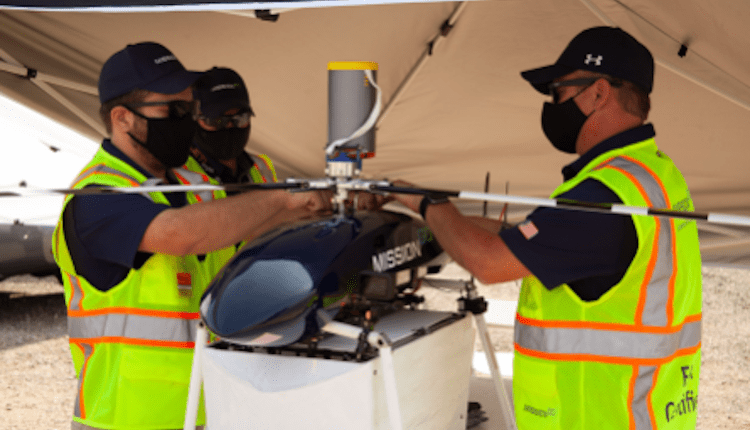
U.S. companies MissionGO and Nevada Donor Network, last week, successfully carried out two drone test flights carrying a human organ and tissue samples, reports emergency-live.com. MissionGO provided the Unmanned aircraft Systems (UAS) or what some describe as an ambulance drone.
The first flight transported research corneas from Southern Hills Hospital and Medical Centre to Dignity Health, St. Rose Dominican, San Martín Campus. This transportation successfully demonstrated the viability, value, efficiency gains, and delivery speed of lifesaving medical supplies and organs via UAS within an urban environment.
The second flight covering a distance of 10 miles, which delivered a research kidney from an airport to a location outside of a small town in the Las Vegas desert, marked the longest organ delivery flight in UAS history. This surpassed the distance of a previous trial in April 2019, when MissionGO team members Anthony Pucciarella and Ryan Henderson, in their roles at the University of Maryland UAS Test Site and in partnership with the University of Maryland Medical Centre, delivered the first kidney by UAS that was then successfully transplanted into a patient.
Anthony Pucciarella, MissionGO President, enthused, “The research conducted during last week’s test flights, again illustrated that unmanned aircraft are a reliable mode of transportation for life-saving cargo, and that MissionGO’s UAS are safe for both the payload and people on the ground, even at greater distances.” This research is the start of a series of medical and aviation research flights with Organ Procurement Organisations (OPOs) in other U.S. regions.
Joe Ferreira, CEO and President of Nevada Donor Network, commented, “The success of last week’s tests launches us into the future of organ transportation and will enable us to be even more successful in the coming years.”
He continued, “The work we’re doing now to maximise the gift of life and health can only be amplified with the services that MissionGO demonstrated. The future of organ donation and transplantation will be defined by innovation.”
Drones reduce the time between organ donation and transplantation and potentially expand organ procurement efficiency, saving more lives, while reducing the carbon footprint. In addition, during the Covid-19 pandemic, the trials emphasised a touchless solution, reducing the number of handoffs by transporting a human organ directly between hospitals through the air, instead of ground-based couriers.
MissionGO has additional flight tests planned for later this year and throughout 2021 with additional OPO innovation partners across the country.
For visual presentation
https://www.youtube.com/watch?v=cs51I9O7Ifo
For more information
(News Source: https://www.emergency-live.com)

